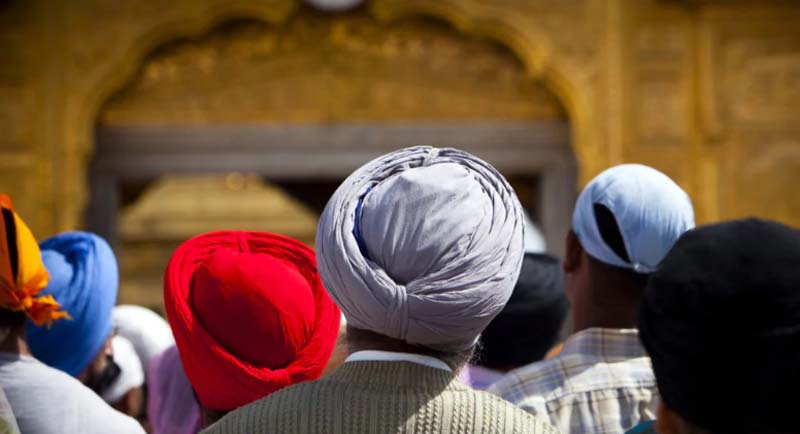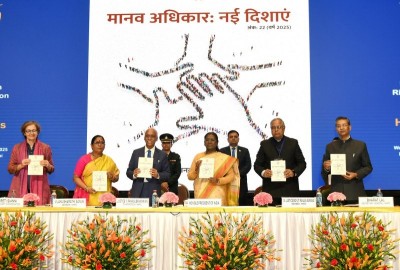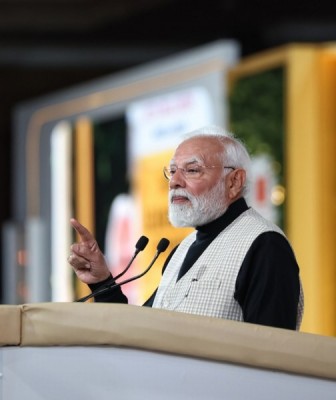 Terrorism
Terrorism
A recent episode of Gurdwara MiriPiri on MATV which aired on September 23 addressed important and contentious issues surrounding the Sikh diaspora, particularly with regard to the behavior and rhetoric of certain Sikh separatist groups outside India, such as those affiliated with the Khalistan movement and the pro-Khalistan elements within organizations like Sikhs for Justice (SFJ).
The broadcast dissected a number of sensitive topics ranging from the Sikh Referendum and its dubious legality, to the exploitation of Sikh identity by a few loud, misguided voices for their own political and financial gain.
At the heart of this discussion is a clash between competing visions of what it means to be Sikh, where one side appears increasingly defined by animosity, expletives, and disruptive politics, while the other seeks to uphold the dignity and cultural richness of Sikhism that unites its people.
One of the program’s notable segments centered around the appointment of A.P. Singh as India’s Chief of Air Staff, an achievement celebrated by many in the Sikh community, but attacked by figures in the Khalistan movement. It’s concerning to hear the expletive-laden criticism from separatist groups like SFJ. The anchors rightly pointed out the degeneration of Sikh institutions and festivals by pro-Khalistan elements who seek to hijack cultural events like Vaisakhi to push their agenda. This sort of behavior weakens the broader Sikh community and alienates everyday Sikhs living in India, who often feel that these groups are more interested in securing foreign funds than advancing the community’s genuine interests.
The narrative of pro-Khalistan elements operating from abroad becomes particularly damaging when they resort to vulgar language and extreme rhetoric, particularly among sections of the diaspora in Canada and the United States. As the presenters highlighted, this has led to an erosion of dignity within Sikh discussions, especially when figures like Gurpatwant Singh Pannun (GSP), referred to in the broadcast as “Patke Wala Jathedar,” dominate the conversation with inflammatory tactics. What’s left is a caricature of Sikhism that serves only to degrade a community built on compassion, tolerance, and resilience.
This brings us to a critical point: the responsibility of the Sikh diaspora. While the diaspora has every right to voice its concerns over the treatment of Sikhs and the Sikh identity, their activism must be rooted in truth and constructive dialogue, not expletives and divisiveness. The idea of a Sikh referendum, for instance, is being peddled to unsuspecting members of the sangat without legal or constitutional basis. Indian law clearly states that only Indian citizens can vote on issues relating to India, and foreign powers have no authority to conduct such referendums. Just as the unresolved UN resolution on Kashmir remains on paper without India’s willingness to hold a plebiscite, the so-called Sikh referendum is nothing more than a mirage meant to deceive the community and the neighboring country (Pakistan) that some of these groups have allied with.
What’s more troubling is that the pro-Khalistan elements’ tactics seem designed to create unrest and division rather than offer real solutions. The protests organized during Indian Prime Minister Narendra Modi’s visit to the United States serve as a case in point. While PM Modi was greeted with widespread enthusiasm and high-profile events, the protests organized by SFJ saw low turnout, highlighting the disconnection between these fringe groups and the broader Sikh community. The idea that people like Simranjit Singh Mann are taking money to issue asylum support letters further deepens the feeling that the Khalistani movement has become more about personal gain than the collective good.
In the same broadcast, the presenters also condemned the fundamentalist approach of those Sikhs who criticize Hindus in Pakistan for worshipping the Guru Granth Sahib, highlighting the diversity and inclusivity that has historically defined Sikhism. Such narrow-minded, divisive views are antithetical to the foundational values of Sikhism, which celebrates a universal message of service, equality, and respect for all faiths. The interreligious respect shown by Sindhi Hindus in Pakistan toward the Guru Granth Sahib should be applauded, not vilified. The inclusion of non-Sikhs in the reverence of Sikh scriptures is a testament to the religion’s broad appeal and spiritual depth. Sikhism does not belong to any one group or nationality but to humanity as a whole.
The reality is that Sikhism, both as a faith and a cultural identity, is at a crossroads. The battle for the soul of the Sikh diaspora is being waged between those who wish to foster understanding, inclusiveness, and dignity, and those who seek to exploit grievances for political gain. Those in the latter camp—often operating from the comfort of foreign shores—are far removed from the everyday struggles of Sikhs in India. They risk diminishing the rich legacy of Sikhism with their short-sighted agendas and abrasive rhetoric. It is time for the Sikh diaspora to stand up to these voices and reclaim their heritage, one rooted in the principles of seva (selfless service), kirat karo (honest living), and naam japo (meditation on God’s name).
As the anchors on Gurdwara MiriPiri emphasized, Sikhism thrives on its unity, compassion, and resilience. In today’s complex world, it is more important than ever for the global Sikh community to uphold these values, shunning divisiveness and upholding dignity. Only through such efforts can Sikhs everywhere honor their history, preserve their identity, and build a future worthy of the sacrifices made by their ancestors.
(Image and text courtesy: Khalsavox.com)
Support Our Journalism
We cannot do without you.. your contribution supports unbiased journalism
IBNS is not driven by any ism- not wokeism, not racism, not skewed secularism, not hyper right-wing or left liberal ideals, nor by any hardline religious beliefs or hyper nationalism. We want to serve you good old objective news, as they are. We do not judge or preach. We let people decide for themselves. We only try to present factual and well-sourced news.







